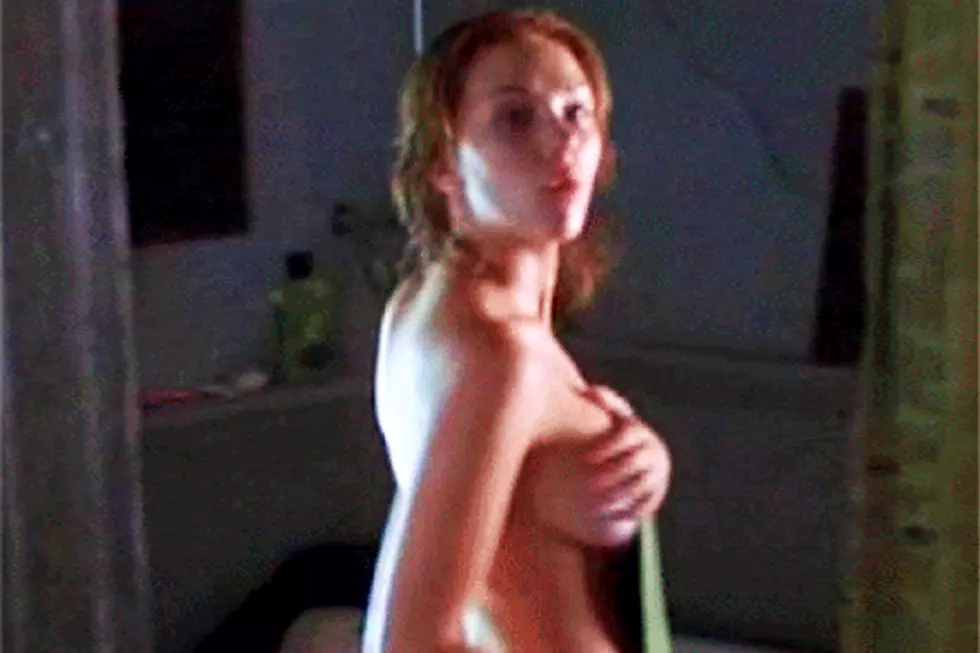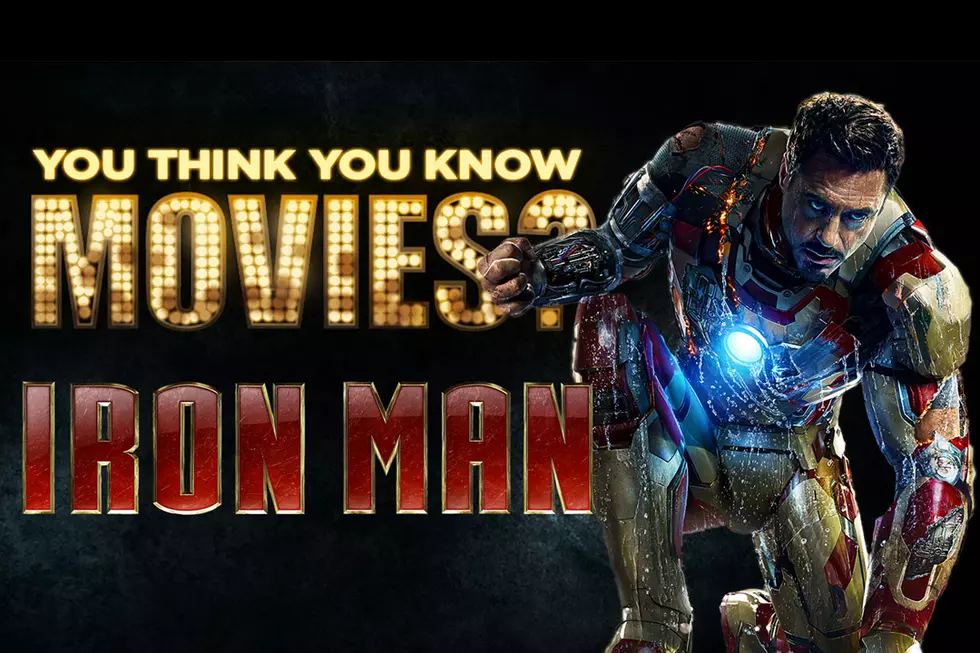
‘Hitchcock’ Review
Many of Alfred Hitchcock's movies, from 'Psycho' to 'Vertigo' to 'Rear Window,' are about voyeurism, so the idea of peering into Hitchcock's own previously hidden private life does make a certain amount of sense. But if 'Hitchcock' resonates with some of the Master of Suspense's ideas, it's never faithful to his spirit. Hitch would never have put his name on a film so full of lame pop psychology and so bereft of excitement, tension and humor. Which is a shame, since the title of this movie is his name.
Based on a far superior book of reportage by Stephen Rebello entitled 'Alfred Hitchcock and the Making of 'Psycho,'' this biopic purports to reveal the behind-the-scenes story of the production of the director's most famous creation. It casts him as a sort of independent filmmaker in spirit, before such a thing existed; 60 years old and riding high on the success of 'North by Northwest,' Hitch (Anthony Hopkins) refuses to simply repeat himself with another stylish spy thriller. Instead, he becomes enamored -- maybe even obsessed -- with a gruesome novel loosely based on real-life serial killer Ed Gein, in which a lonely, pervy motel manager cleans up his psychotic mother's murders. Hitchcock's bosses at Paramount Pictures refuse to fund the project, so he convinces his wife Alma (Helen Mirren) that they should bankroll the picture themselves with $800,000 of their own money, which was not exactly chump change back in 1960.
One would imagine that the nuts and bolts of the creation of one of the most famous horror movies in history would provide enough drama for 'Hitchcock.' Apparently, one would be wrong. Though 'Psycho' is certainly the backdrop of its story, there's surprisingly little about its actual production in 'Hitchcock.' You'll meet the film's versions of Anthony Perkins (James D'Arcy), Vera Miles (Jessica Biel), and Janet Leigh (Scarlet Johansson) but you'll barely hear Bernard Herrmann's iconic score, and you'll never see the Bates Motel or house. Legitimate controversies about the making of the film -- like whether Saul Bass directed the famous shower scene or simply provided unused storyboards -- are never even brought up.
Instead, the film focuses on Alfred and Alma's relationship at its most formulaically rocky point. With Hitch consumed with 'Psycho' and doting on Janet Leigh, Alma agrees to help a screenwriter named Whitfield Cook (Danny Huston) on a script he hopes to convince Hitchcock to direct -- and permits herself a few flirtations as well, which sends Hitchcock into a rage of jealousy. Cook was a real writer who co-authored several Hitchcock thrillers including 'Strangers on a Train.' But even if his almost-affair with Alma has any basis in history, onscreen it feels like the worst kind of drummed up Hollywood biopic schmaltz, an attempt by 'Hitchcock' screenwriter John J. McLaughlin to inject unpredictable interpersonal tension into a movie whose outcome everyone already knows.
McLaughlin also makes the strange decision to turn Ed Gein into a character in the film, in the form of a ghostly figure who appears to Hitchcock and offers sardonic advice on the film and marriage. 'Hitchcock' suggests that the director was obsessed with Gein and Norman Bates; that he related to his issues with his mother and shared their love of birds and staring at women through peep holes. It's a dubious claim at best; in Francois Truffaut's book-length interview with the Master of Suspense, Hitchcock doesn't even appear to know Ed Gein's name, and tells Truffaut he only wanted to make 'Psycho' because of "the suddenness of the murder in the shower" and the opportunities it afforded him to use the tricks of his trade to toy with the audience. "That," Hitchcock says, summing up the novel's limited charms, "was about all." Still, if the idea of Hitchcock shooting the shit with the ghost of a serial killer sounds absurd, that doesn't automatically preclude it from also working -- but the scenes the characters share offer no deeper insight into Hitchcock as man or filmmaker.
Mirren and Hopkins are good in their roles, convincingly evoking the rapport of a lifelong partnership full of love and admiration, but little physical affection. Hopkins doesn't let a mountain of prosthetic makeup bury his performance, and his approximations of Hitchcock's physical and verbal tics are convincing enough. They're surrounded by a superb supporting cast as well, including Michael Stuhlbarg, Kurtwood Smith and Toni Collette. Johansson ia particular and pleasant surprise, radiating effervescent movie star charisma as the charming Leigh.
Still, even these fine actors bring little spark to the film's inert drama -- and aside from a single scene near the end of the picture where Hitchcock "conducts" the shower scene from memory during 'Psycho's premiere Gervasi never even approaches the deft manipulation of cinematic technique that made Hitchcock one of the greatest directors of all-time. Mostly 'Hitchcock' feels unworthy of its stars' talents. Or, y'know, the guy who it's named after.
Matt Singer is a Webby award winning writer and podcaster. He currently runs the Criticwire blog on Indiewire and co-hosts the Filmspotting: Streaming Video Unit podcast. His criticism has appeared in the pages of The Village Voice and Time Out New York and on ‘Ebert Presents at the Movies.’ He lives in Brooklyn with his wife, dog, and a prop sword from the movie ‘Gymkata.’
More From GuySpeed










